
Laura Lindsey
I am a chartered psychologist with more than 10 years experience in public health research. I am a Senior Fellow of the Higher Education Academy and an associate fellow of the British Psychological Society.
My research expertise is around patient experience and access to care. My particular interest is around antipsychotic withdrawal and people being offered the support they need. As a qualitative researcher, I am interested in the use of qualitative methods and the role they can play to explore ways of improving the patient experience and outcomes and patient involvement in the care process.
Less ![]()

Laura Link
Assistant Professor of Teaching and Leadership, University of North Dakota
Dr. Link is the co-author of Cornerstones of Strong Schools: Practices for Purposeful Leadership and author of several articles, book chapters, and professional papers on school leaders, grading, and classroom assessments. She currently serves as an assistant professor and Graduate Director of the Master of Science in Teaching & Leadership program at the University of North Dakota and has won many awards for her community engagement.
Dr. Link served as Associate Dean of the College of Public Service at the University of Houston-Downtown and in various K-12 central office and school-based leadership roles such as Chief Academic Officer, Chief Talent Management Officer, Assistant Superintendent, Professional Development Director, and more. She has taught elementary, middle, high school and college students in her 32 years in the education profession. While Dr. Link was Assistant Superintendent of Teaching & Learning in Memphis, TN, she was 1 of 7 administrators charged with leading the largest school district merger in United States’ history.
Less ![]()

Laura MacDiarmid
Assistant Professor, Justice Studies, University of Guelph-Humber
My research explores the experiences of criminal justice-involved individuals with a particular focus on community justice alternatives, such as restorative justice and bail. I draw from sociological and criminological theories that account for interactional dynamics, emotion, and punishment.
Less ![]()

Laura Makey
PhD Candidate, Sheffield Hallam University
My specialist interests are in infectious diseases and sexual health. I have been involved with a number of research trials for testing new HIV drugs and treatments for sexually transmitted diseases. I also have a keen interest in clinical research design and methods to improve recruitment to research trials. I am currently studying for a PhD on Loneliness amongst women with a HIV diagnosis.
Less ![]()
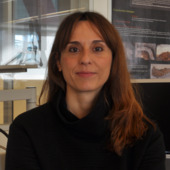

Laura McLauchlan
Postdoctoral Fellow in Anthropology, Macquarie University
Laura McLauchlan is a Postdoctoral Fellow in Anthropology at the School of Social Sciences at Macquarie University. Laura’s work examines practices and worldviews that variously support and block generative connection both within human and other-than-human relationships.
Less ![]()
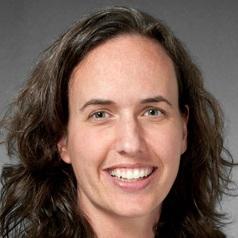
Laura Middleton
Assistant Professor, Department of Kinesiology, University of Waterloo
Cognition abilities are critical to educational and occupational achievement, daily function, and even movement. Unfortunately, cognitive performance declines on average in late life and the prevalence of dementia nearly doubles every five years after the age of 65 years. My research identifies has two focuses: 1) to optimize cognition across the life course and to prevent dementia in late life; 2) to promote strategies to 'live well' with dementia. In particular, I investigate the role of physical activity in the prevention of dementia and improvement of well-being among people living with dementia.
Less ![]()

Laura Minor
Lecturer in Television Studies, University of Salford
My research draws on/explores feminist television studies, female authorship, women’s labour in the media industries, comedy, representations of class, and British screen cultures.
I am currently writing a book on women in comedy, entitled "Reclaiming Female Authorship in UK Television Comedy" for Edinburgh University Press.
I have recently released an article for the European Journal of Cultural Studies on the figure of the 'hun' in British culture: https://journals.sagepub.com/doi/full/10.1177/13675494221134344.
Less ![]()

Laura Muncey
Senior Lecturer in Economics, Anglia Ruskin University
Laura's background is in Investment Banking before moving in to the Higher Education sector. Her primary interests are based around financial economics and Women in HE. She is also leading on the departments Outreach.
Less ![]()

Laura Neil
PhD Candidate, Centre for Health Services Research, The University of Queensland
Less ![]()

Laura Nicholson
While working towards my PhD in psychology, I worked as a Sessional Lecturer teaching research methods and data analysis at Liverpool John Moores University from 2004 to 2008. I joined the Department of Social and Psychological Sciences at Edge Hill University as a Research Assistant in 2009, in which I worked on several educational psychology projects for 18 months. I then became an Associate Tutor in the same department, in which I teach research methods and analysis, educational psychology and real world psychology. I joined the Faculty of Education research team in October 2013, and work on a variety of projects, primarily in the area of educational psychology.
Less ![]()
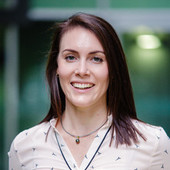
Laura Pernoud
Associate Professor in Physiology, School of Health, University of the Sunshine Coast
Less ![]()
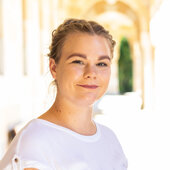
Laura Pernoud1
PhD Candidate in Women's Health, School of Health, University of the Sunshine Coast
Less ![]()

Laura Pin
Assistant Professor, Faculty of Arts, Wilfrid Laurier University
Dr Pin's research examines public policy, participatory democracy and housing. She uses community-engaged research to understand the lived experiences of policy decisions, especially those often excluded from decision-making processes. Dr. Pin grew up in Hamilton, ON., and obtained her PhD from York University in political science. Prior to her position at Wilfrid Laurier University, she was a postdoctoral researcher at the Community Engaged Scholarship Institute at the University of Guelph. She has worked as a policy consultant with municipal and federal levels of government, and many community partners. Dr. Pin is currently involved in three SSHRC funded research projects concerning housing policy, civic engagement and municipal politics.
Less ![]()
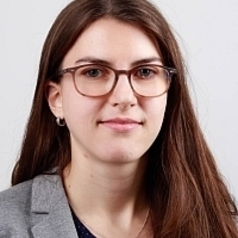
Laura Scherer
Assistant Professor, Institute of Environmental Sciences, Leiden University
Laura Scherer is an assistant professor at Leiden University's Institute of Environmental Sciences (CML). She is interested in research on impact assessment and prioritization related to biodiversity, water, climate, and animal welfare, with applications especially in the food sector. She contributed to reports of FAO and UNEP and currently works in the Global Guidance for Life Cycle Impact Assessment Indicators and Methods (GLAM) project hosted by UNEP. She leads a work package on climate and health impacts of shifting lifestyles within the Horizon 2020 project 1.5° Lifestyles and co-leads the Horizon Europe project BAMBOO, which focuses on biodiversity impacts of non-food biomass along global supply chains. Her team's main research contribution to the BAMBOO project is the development of impact assessment methods for functional diversity.
Professional experience
Laura obtained her PhD from ETH Zurich in 2016. During her doctoral studies, she analysed the environmental impacts of water consumption and degradation at regional and global scales. She applied her research to the agriculture and energy sectors. Afterwards, as a postdoctoral researcher at VU Amsterdam, she coordinated the European research project VITAL where she evaluated the opportunities and constraints for sustainable intensification of agriculture in Europe.
Less ![]()

Laura Scholes
Associate Professor and ARC Principal Research Fellow, Australian Catholic University
Master of Arts (Justice Studies), Faculty of Law, QUT.
PhD (Education), The University of Queensland
Less ![]()

Laura Serra
Postdoctoral Research Officer, London School of Economics and Political Science
Laura Serra is a Research Officer at the Electoral Psychology Observatory at the LSE. Laura’s research focuses on how demographic characteristics, particurlarly age and generations, affect political behaviour and attitudes. Before joining the EPO, Laura was a Lecturer in Politics and Research Methods at Royal Holloway, University of London, where she also completed her PhD in Political Science. Her doctoral research examined the age-gap in British partisanship through the perspective of intergenerational value change, the expansion of higher education, the effect of targeted partisan appeals, and the increasingly delayed transition into adulthood.
Less ![]()

Laura Sochas
Leverhulme Early Career Fellow, School of Social and Political Science, The University of Edinburgh
Laura Sochas' research focuses on how power, institutions, and social policies affect health inequalities. She takes a critical feminist stance, engaging with theories such as intersectionality and Reproductive Justice. Her work has been published in high-impact journals such as Social Science & Medicine, the Socio-Economic Review, Demography, Health Policy & Planning, and BMJ Global Health.
Her Leverhulme-funded project is titled: “Policing Reproduction via Migration and Family Policies: Stress, Stigma & Health”. Through this research, she is exploring how migration and family policies in Europe affect parents’ rights to have children and to parent with dignity, and how this affects their health, formulating a quantitative approach to Reproductive Justice.
She has previously published on topics such as: collective bargaining and health inequalities; researching intersectionality using quantitative and mixed methods; modelling the indirect mortality effects of epidemics; how health service environments and health facility rules affect maternal health inequalities; how interviewers affect the likelihood of reporting an abortion.
Laura obtained her PhD in Demography from the Department of Social Policy at LSE (2020). She holds an MSc in Social Research Methods (2016) and a Masters in Public Administration (2011) from LSE, as well as a BA in Philosophy, Politics and Economics (2007) from the University of Oxford. Prior to her PhD, she worked as a consultant on public health programmes in African and South Asian countries, for clients such as UKAID, the Gates Foundation, and UNFPA.
She is happy to be contacted in relation to the following topics: health inequalities; Reproductive Justice; collective bargaining and trade unions; maternal and reproductive health in the Global South.
Less ![]()
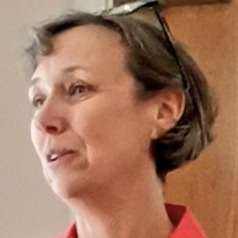
Laura Spence
Professor of Business Ethics, Royal Holloway University of London
Laura J. Spence is a Professor of Business Ethics in the Department of Human Resource Management and Organisational Studies, Royal Holloway, University of London. She has previously held the posts of Associate Dean (Research) supporting the School of Business and Management and the School of Law and Social Sciences, Director for the Centre for Research into Sustainability and School Director of Impact.
In 2023, Professor Spence was conferred the honour of Fellow of the Academy of Social Sciences. She was a REF2021 Sub-Panel Member for Business and Management Studies. At the University of Oxford, Professor Spence is an International Research Fellow at the University of Oxford Centre for Corporate Reputation, and Visiting Fellow at Kellogg College.
Laura's research interests relate to a wide range of management studies issues, in particular, critical corporate social responsibility, small business social responsibility, supply chain sustainability and a critique of Creating Shared Value. She uses moral and social theory in her research, favouring qualitative and conceptual studies. Laura has a particular interest in the place of gender and feminist perspectives in business ethics and corporate social responsibility research and practice. She is developing work on SMEs and climate action, particularly in relation to NetZero.
Less ![]()
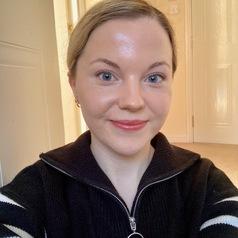
Laura Stewart
Lecturer, The University of Edinburgh
Laura Stewart is originally from the Isle of Lewis. She graduated with an Honours degree in Mathematics and Statistics from the University of Glasgow, and then obtained her PhD in Statistics within the same department. After completing her PhD, she has worked as a lecturer in Statistics and is currently working for the University of Edinburgh. During her studies she had several internships working on statistical projects in the Economic Development department of Comhairle nan Eilean Siar. These projects used data on the local population, businesses and economy to inform business support planning.
Her other research interests range from theoretical probability to more applied topics within Sports Science, Clinical Trials and working with educational data in the context of widening participation in Higher Education.
Less ![]()

Laura Tensen
Post-doctoral Fellow, University of Copenhagen
My great passion has always been nature conservation. I started my career off by studying wildlife management, followed by an MSc in ecology. During my BSc I was involved with a project on jaguar predation in Brazil, the impact of deforestation on mammal diversity in Paraguay, and the effect of habitat fragmentation on lynx distribution in Poland. During my MSc I changed my focus to Africa, a territory yet unknown to me. I initiated a study on the population structure of leopards in South Africa, and became involved with a project on the genetic uniqueness of West-Central African lions. This inspired me to move to South Africa, where I started a PhD on the conservation and genetics of African wild dogs.
For my doctorate I mainly studied the impact of habitat fragmentation on the genetic viability of wild dogs in Zimbabwe and South Africa, using mtDNA and microsatellite markers. During this time, I met many biologists in South Africa with the same interests as me, which led to new ideas and fresh projects. These formed the foundation of a postdoctoral position at the Centre for Ecological Genomics and Wildlife Conservation, University of Johannesburg. After these fruitful years I moved to Germany, for a postdoc position at the University of Koblenz, followed by a position at the University of Copenhagen. My research mainly focuses on the interface between carnivore ecology and landscape genomics, with a particular interest in identifying the effects of anthropogenic stresses such as hunting and habitat loss.
I have recently also gained an interest in using colour polymorphism to test evolutionary genetic theories, including the influence of heterozygosity deficiency, as well as in hybrid swamping and speciation. The impact of hybridization in the wild is still poorly understood, even though it is an important evolutionary force with significant implications for species conservation. Together with collaborators, we have developed genetic guidelines for conservation translocations, to provide managers with a simple decision-tree on how to adopt the best strategy when the aim is to maintain intraspecific genetic variation.
Less ![]()
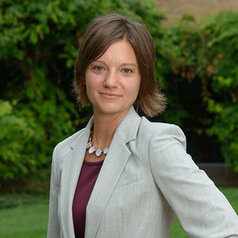
Laura Voith
Associate Professor of Applied Social Sciences, Case Western Reserve University
Dr. Voith has worked over the last decade to address violence against women and youth through counseling, agency- and community-based coordination efforts, and research.
Her research focuses on the prevention and intervention of violence against women by working with boys and men to uncover the etiology of violence though the lens of trauma and health disparities. Her research shows that exposure to adversity and violence in family- and community-settings in childhood and adolescence are significant factors that, if gone unaddressed, can lead men to perpetrate violence in adulthood. Dr. Voith’s research aims to inform the development and evaluation of violence prevention programs with at-risk youth and improve batterer intervention programming with men.
Less ![]()

Laura Waters
I am an academic scientist, researching pharmaceutical formulations, analytical techniques and the development of alternatives to animal testing.
Less ![]()

Laura Whitworth
Group Laboratory Manager, Department of Medicine, University of Cambridge
I am a molecular biologist who studies the interaction of infectious diseases with human genetics. Our focus is on trying to understand why some individuals get infected with tuberculosis, while others are able to clear the infection.
I started my scientific career as a marine biologist, then moved into human genetic analysis of various diseases. When I joined Lalita Ramakrishnan's lab, it was the perfect combination of fish and human immune system biology.
Less ![]()

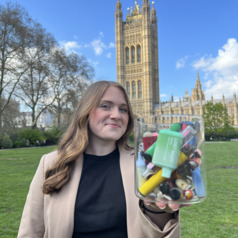
Laura Young
PhD Researcher, Environmental Sciences, Abertay University
Laura Young is an award winning climate activist, environmental scientist, and ethical influencer. She began her PhD between Abertay University and the University of Dundee in 2022 as a Hydro Nations Scholar in community engagement and climate resilience.
She has a First Class honours degree in Geography and Environmental Science from the University of Dundee, and a Masters with Distinction in Environmental Protection and Management from the University of Edinburgh. As part of her studies she spent a year at the University of Guelph, Canada, before setting off to complete her dissertation working on mangrove projects in Akumal, Mexico.
Laura can be found across all social media platforms at @LessWasteLaura
Less ![]()

Laura A. Henry
Associate Professor of Government and Legal Studies, Bowdoin College
I specialize in contemporary Russian politics, in particular NGOs, social movements, and state-society relations in Russia. Much of my work has been focused on environmental and natural resource issues.
Less ![]()


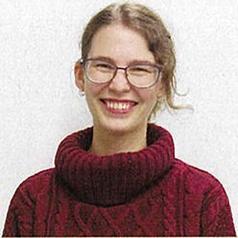
Laura Emily Clark
Lecturer in Japanese, University of New England
Laura Emily Clark is a Lecturer in Japanese at the University of New England. Her research explores contemporary Japanese literature, gender, and Japanese authors in the transnational literary sphere. Her co-authored paper with Kenko Kawasaki has been published in Japanese Studies (2022) and her work on Covid-19 short fiction was published in Gender, Place and Culture (2022). She received her PhD from the University of Queensland on Japanese gender ideals in Haruki Murakami's fiction. She received the Mariko Bando Fellowship from Showa Women’s University in 2020.
Less ![]()
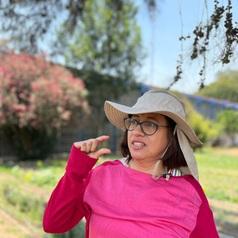
Laura Gomez Tovar
Researcher on agroecology, organic agriculture and local markets, University of Chapingo
Engineer in Agroecology from the Autonomous University of Chapingo. Master's degree in “Science, Society and Technology” with a specialization in “Innovation Systems and Ecological and Social Change” at Roskilde University and Aalborg University in Denmark. Researcher professor of the Department of Agroecology and founder researcher of the Interdisciplinary Research Center for integral Rural Development (CIIDRI) of the Autonomous University of Chapingo. Part of the team founder of the Chapingo´s Organic Local Market (Tianguis Orgánico Chapingo) and the Mexican Network of Local Organic Markets. More than 20 books published, some are: Citricultura orgánica con enfoque agroecológico: un modelo exitoso en el Norte de Veracruz (CEDRSSA, 2022), Guía agroecológica para la producción de naranja orgánica (UACh, 2021 y 2017), Agricultura Orgánica: Bases Técnicas (UACh, 2017). Biopreparados vegetales y minerales para el manejo de plagas y enfermedades en la agricultura ecológica (UACh, 2023 y 2013) y Desafíos de la Agricultura Orgánica. Certificación y Comercialización (Mundi Prensa, 1999 y 2001).
ORCID: https://orcid.org/0000-0002-8588-4436
Researchgate: https://www.researchgate.net/profile/Laura-Tovar-5
Less ![]()
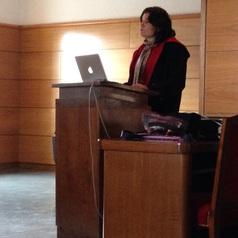
Laura Jiménez Ortega
Profesora del Departamento de Psicobiología y Metodología en Ciencias del Comportamiento, Universidad Complutense de Madrid
Profesor Contratado Doctor del departamento de Psicobiología en la Universidad Complutende de Madrid. Doctora en Neurociencias por la “International Graduate School of Neuroscience” de la “Ruhr- Universität-Bochum” (Alemania). Dicho doctorado lo realizó, gracias a la adjudicación de una beca-proyecto por el IGSN dentro del programa Marie Cuirie Actions, que incluía también financiación como investigador principal. Realizó su tesis doctoral sobre comportamiento y percepción visual en aves. Previamente obtuvo el título de licenciada en Psicología por la UCM y estuvo de estancia en la “University College of London”, donde realizó labores de investigación. Ha trabajado en diversos temas de investigación dentro del área de la Neurociencia, tanto en el área de percepción visual y comportamiento animal como en torno al cerebro y la cognición humana. En la actualidad sus principales áreas de investigación son: el estudio de las interacciones entre procesos cognitivos y emociones, procesamiento subliminal del lenguaje y las emociones y los factores psicológicos y emocionales que afectan a la salud. Ha formado parte de diversos comités científicos organizadores de conferencias y cursos de verano. Es profesora de varios masters y títulos propios en el área de la salud y de la etología animal, en la Universidad Complutense de Madrid y en la Universidad Autónoma de Madrid. Es autora y coautora de diversas publicaciones en revistas científicas internacionales de prestigio, en su mayoría dentro el primer cuartil de su categoría, apostando por la calidad de las publicaciones. Ha impartido diversas ponencias y realizado participaciones en congresos, cursos y conferencias tanto nacionales como internacionales y ha realizado también trabajos y actividades de divulgación.
Less ![]()
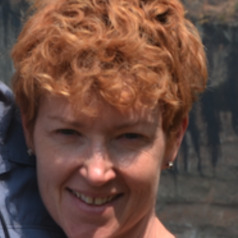
Laura M. MacLatchy
Professor of Anthropology, University of Michigan
I am a paleoanthropologist interested in understanding the relationship between biological form and function, with research foci on primate locomotor evolution, and hominoid (ape and human) origins. Most of my field work has been conducted at 19-21 million-year-old sites in northeastern Uganda, which record evidence of the earliest known fossil apes.
The arboreal habitat of primates poses unique challenges, including substrate gaps and complex and unstable supports, which have led to the evolution of diverse forms of locomotion. Although humans are terrestrial, we still bear the hallmarks of prior arboreal specializations. A major evolutionary event among our hominoid relatives was the adoption of frequent upright postures (orthogrady) and suspensory (below branch) behavior from more monkey-like branch walking. These novel behaviors opened new niches, and selected for a body with a stable lower back that was (arguably) modified for habitual upright posture and bipedality in one hominoid group, the human lineage. The investigation of the locomotor adaptations of our ape predecessors, and the nature of their behavioral transitions, which also include dietary and body size changes, is a centerpiece of my research program. In order to test hypotheses generated from paleontological studies, I also study the locomotion of wild chimpanzees in the Kibale Forest, Uganda.
Less ![]()
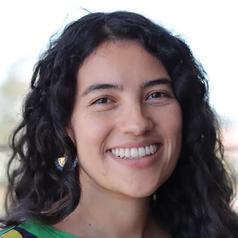
Laura Melissa Guzman
Assistant Professor of Biology, USC Dornsife College of Letters, Arts and Sciences
The overarching goal of my research is to develop statistical and computational methods to leverage large biodiversity datasets to learn about ecological processes.
While we know that the distribution of some species is changing, it is actually very difficult to make reliable inferences as to which species are declining and by how much from the often messy and complex historical and spatial datasets that we have to work with — for example, historical museum records, where species occurrences are aggregated from studies with different sampling procedures. In order to address this gap, my research focuses on determining if and how statistical models can be applied to historical records without yielding biased trends. In my research I also apply these statistical models to determine how the distribution of pollinators has changed through time, where museum records provide lots of information. I am also interested in determining which drivers (e.g. pesticide use, climate change, land use change, etc.) are causing the most decline of the most pollinator species.
Another aspect of my research is to understand the processes that shape communities, for example I have combined experiments and modelling to understand how the structure of body size in a community affects the stability of food webs. In more recent work, I used large-scale simulations and machine learning to identify the signal of metacommunity processes in ecological time series.
Less ![]()

Laura Perez Gonzalez
Research Assistant, School of Social Work, Toronto Metropolitan University
Laura Perez Gonzalez is a research assistant in the School of Social Work at Toronto Metropolitan University. Her research focuses on education, immigration, women’s empowerment, and their intersectionalities in the
experiences of youth.
Less ![]()
- Market Data





















